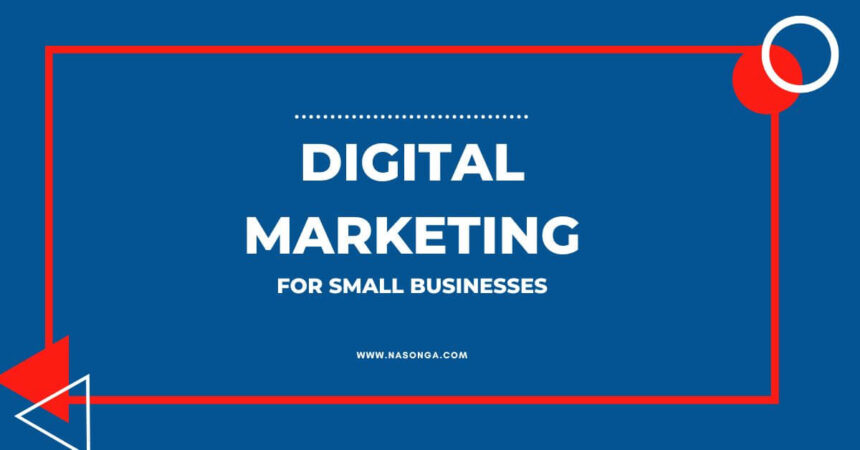As a Digital Marketing Specialist with over seven years of working with businesses of all sizes, I’ve realized that small businesses have a big problem. The traditional marketing and advertising they’re used to are not as effective as it once was. Some businesses have adopted digital marketing, but many are doing it wrong.
In this guide, I will reveal some of the most effective digital marketing tips for small businesses that will enable business owners like you to take your business to the next level.
My goal with this guide is to show you how crucial digital marketing is for small businesses and share some tips on getting started with a limited budget.
1. Understand Your Target Audience
This is the most important tip I can give you regarding digital marketing. You need to know who your target audience is before you can start marketing to them.
There’s no use in trying to appeal to everyone, as you’ll waste time and money on marketing strategies that don’t work. By understanding your target audience, you can create marketing campaigns designed specifically for them.
2. Create a Website
A website is essential for any business, but it’s even more important for small businesses. A website gives you a platform to showcase your products or services and is a great way to reach out to your target audience.
If you don’t have a website, potential customers will have difficulty finding you online. And if they can’t find you online, they will likely take their business elsewhere. Many no-code tools or website builders can help you create a professional-looking website without learning to code.
3. Learn SEO
Having a website is not enough. You must ensure your website is optimized for search engines so people can find it when searching for businesses like yours. This process is called Search Engine Optimization, or SEO.
According to HubSpot, SEO leads have a 14.6% close rate, which is why it’s important to have SEO knowledge.
Although SEO is a complex topic, there are some simple things you can do to improve your website’s ranking in search results. For example, you can make sure your website’s title tags and meta descriptions are keyword-rich, and you can create fresh content regularly. You can use many other SEO techniques, but these are some basics.
4. Use Social Media
Social media is a powerful marketing tool that all businesses should use, but it’s essential for small businesses. Social media allows you to reach out to your target audience where they already are and build relationships with them.
There are many social media platforms, but the most popular ones are Facebook, Twitter, LinkedIn, and Instagram. Choosing the platform or platforms that are most popular with your target audience is essential.
5. Start a Blog
A blog is a great way to generate fresh content for your website and build relationships with your target audience. A blog also allows you to show off your expertise and establish yourself as an authority in your industry.
Your company website is great, but how often should you update the home page? Not that usually, right? A blog is a perfect way to keep your website current without having to make significant changes to the site. You can add new blog posts as often as you like.
6. Optimize Google My Business
I often see many small businesses neglecting their Google My Business listing. Your Google My Business listing is essential because it gives you control over how your business appears in search results.
You can use your Google My Business listing to add photos, business hours, contact information, and more. You can also use it to post updates about your business, which will appear in search results.
7. Use Email Marketing
Back in the day, we used to say, “There is money in the lists,” and that is still true today. Email marketing lets you stay in touch with your customers and prospects and build relationships with them.
Email marketing is also a great way to promote your products or services and is an effective marketing tool for small businesses. You can use email marketing to send out weekly or monthly newsletters, special offers, and more.
8. Analyze Your Data
One of the great things about digital marketing is that it generates a lot of data you can use to improve your marketing campaigns. It’s important to analyze this data to see what’s working and what’s not.
Data is the beauty of digital marketing, which can be very helpful to small businesses. You can fine-tune your marketing campaigns and get better results by analyzing your data.
9. Stay Up to Date With Industry Trends
The digital marketing landscape is constantly changing, so it’s essential to stay updated with industry trends. This will help you keep your marketing campaigns fresh and relevant.
One way to stay updated with industry trends is to read marketing blogs and articles, listen to marketing podcasts, and attend marketing conferences and events.
10. Hire a Digital Marketing Agency or Specialist
You are not in digital marketing; your business is your business. Many small businesses make the mistake of trying to do their digital marketing, but it’s often best to leave it to the experts.
Hiring a digital marketing agency can be an excellent investment for your business. An agency will have the knowledge and experience to help you create and execute effective marketing campaigns.
You don’t need a budget like that of a large company to have a successful digital marketing campaign. We have agencies of different sizes and capabilities that can meet your specific needs and budget.
Digital marketing can be an excellent investment for small businesses. You can use digital marketing tactics like those listed above to reach your target audience and generate more leads and sales. If you’re unsure where to start or need help implementing these tactics, contact me via LinkedIn.







